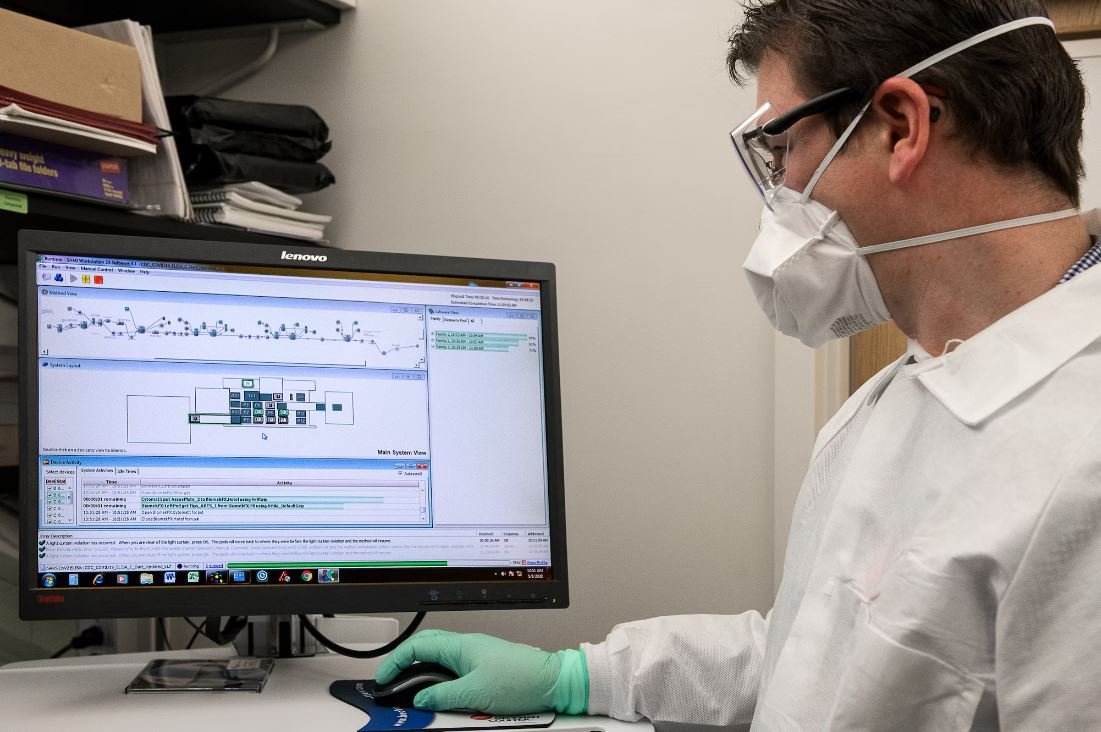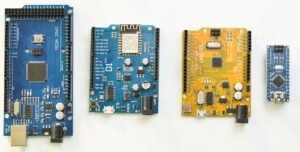AI-Led Automation in Software Engineering
Artificial Intelligence (AI) is revolutionizing the field of software engineering, enabling organizations to streamline processes, improve efficiency, and deliver high-quality software products. AI-led automation in software engineering involves the use of AI algorithms and technologies to automate manual and repetitive tasks, minimize errors, and accelerate development cycles. This article explores the key aspects of AI-led automation in software engineering and its potential implications for the future of software development.
Key Takeaways
- AI-led automation in software engineering streamlines processes and improves efficiency.
- Automation helps minimize errors and allows for faster development cycles.
- AI algorithms and technologies offer numerous benefits for software development.
Benefits of AI-led Automation in Software Engineering
The integration of AI algorithms in software engineering offers numerous benefits for organizations looking to enhance their development processes. By automating repetitive tasks, software engineers can focus their efforts on more complex and critical areas. This leads to increased productivity and faster project delivery. Additionally, AI can improve the quality of software by identifying potential bugs and vulnerabilities early in the development stage, ultimately resulting in more robust and secure products.
*AI-led automation reduces the burden of manual tasks and frees up time for more strategic work.*
Areas of Automation in Software Engineering
AI-led automation can be applied to various areas of software engineering, transforming how developers and organizations approach different aspects of the development life cycle. Some key areas where AI-enabled automation is making significant impact include:
- Code Generation: AI algorithms can generate code snippets, reducing the amount of manual coding required and speeding up development.
- Testing and Debugging: Automation techniques utilizing AI can automate testing procedures, identify and fix bugs, and improve software quality assurance.
- Requirements Analysis: AI can analyze user requirements and provide insights to developers, enabling faster and more accurate decision-making.
- Deployment and Operations: Automation tools can deploy software to cloud platforms, monitor performance, and facilitate efficient operations.
*The use of AI in software engineering automates repetitive tasks across the development life cycle, improving overall efficiency and productivity.*
The Role of AI in Assisting Software Engineers
AI is not replacing software engineers; rather, it is augmenting their abilities and assisting them in delivering high-quality software products. AI algorithms can analyze vast amounts of data, identify patterns and trends, and offer insights to software engineers, aiding in decision-making and problem-solving. Additionally, AI-powered tools can provide intelligent recommendations, support code refactoring, and help software engineers optimize performance.
*With AI assistance, software engineers can leverage their expertise and creativity to build better software solutions.*
AI-Led Automation Statistics
| Statistic | Data |
|---|---|
| Percentage of software developers using AI in their development process | 68% |
| Reduction in bug fixing time when using AI for testing | up to 50% |
Benefits of AI-Led Automation in Software Engineering
| Benefit | Description |
|---|---|
| Increased Productivity | Automating repetitive tasks allows developers to focus on more complex and critical areas. |
| Improved Software Quality | AI algorithms help identify and fix bugs early in the development stage, resulting in more robust and secure products. |
| Efficient Decision-Making | AI can analyze user requirements and offer insights to developers, facilitating faster and more accurate decision-making. |
Challenges and Future Implications
While AI-led automation brings significant benefits to software engineering, it also presents challenges that need to be addressed. Ethical considerations, such as bias in AI algorithms and the impact on job security, must be carefully monitored. Additionally, AI algorithms need to be continuously trained and updated to keep up with evolving software development practices.
*The future implications of AI-led automation in software engineering are promising, with potential advancements in natural language processing, intelligent software assistants, and enhanced collaboration between AI and human developers.*
In conclusion, AI-led automation is transforming software engineering by automating repetitive tasks, improving productivity, and enhancing the overall quality of software products. By leveraging AI algorithms and technologies, organizations can streamline their development processes and deliver innovative solutions to meet the ever-evolving demands of the digital landscape.

Common Misconceptions
Misconception 1: AI will replace human software engineers
One common misconception around AI-led automation in software engineering is that it will completely replace human software engineers. However, this is far from the truth. While AI can automate certain repetitive tasks and suggest potential solutions, it is still limited in creativity and critical thinking abilities, which are vital for complex problem-solving and decision-making in software engineering.
- AI automation complements human software engineers
- Human software engineers are essential for strategic planning and decision-making
- Creativity and critical thinking are still crucial and difficult to replicate with AI
Misconception 2: AI-led automation will lead to job losses
Another common misconception is that AI-led automation in software engineering will lead to job losses. While it is true that certain routine tasks may be automated, this does not necessarily mean job losses. Instead, it can free up human software engineers’ time to focus on more complex and creative aspects of their work, thereby increasing their productivity and adding value to their organizations.
- Automation can enhance productivity and efficiency
- Human engineers can focus on higher-value tasks
- New opportunities may arise in AI-related roles
Misconception 3: AI-led automation can solve all software engineering challenges
AI-led automation is often seen as a panacea to all software engineering challenges. However, this is not the case. While AI can assist in certain areas such as bug detection and code optimization, it is not a perfect solution for all problems. Certain challenges, such as software architecture design and requirements gathering, still require human expertise and understanding of business contexts.
- AI can assist in specific areas but not all
- Human expertise is crucial for complex problem-solving
- Contextual understanding is essential for effective software engineering
Misconception 4: AI-led automation reduces the need for software engineering skills
Some people believe that with AI-led automation, the need for software engineering skills will diminish. However, this is a misconception. In fact, as AI continues to advance, the demand for software engineering skills will likely increase. Software engineers will still be required to understand, implement, and improve upon the AI systems used in automation, ensuring their reliability and effectiveness.
- AI-led automation requires software engineering skills for implementation
- Software engineers are needed to improve and maintain AI systems
- AI knowledge complements software engineering skills
Misconception 5: AI-led automation always produces better results than human engineers
An often misguided notion is that AI-led automation always produces superior results compared to human engineers. However, AI systems are only as good as the data they are trained on, and their outputs can be influenced by biases within the data. Human engineers, on the other hand, can provide critical judgment and domain knowledge, which can lead to more informed decision-making and better outcomes.
- AI outputs are dependent on the quality and biases of training data
- Human engineers can provide critical judgment and domain expertise
- A combination of AI and human expertise can lead to optimal results

AI-Led Automation in Software Engineering
Software engineering is constantly evolving with advancements in technology. One significant breakthrough in recent years has been the integration of artificial intelligence (AI) in various aspects of software development. This article explores ten instances where AI-led automation has revolutionized software engineering processes, increasing efficiency and accelerating innovation.
Automated Bug Detection Tools
Bug detection is a critical task in software engineering. AI-powered tools utilize machine learning algorithms to automatically identify and classify potential bugs in code, significantly reducing the time and effort required for manual bug detection.
Code Optimization
AI-based optimization algorithms analyze code patterns and identify areas where performance can be enhanced. Through automated code optimization, software engineers can achieve faster execution, reduced memory consumption, and improved overall efficiency of their programs.
Automated Code Generation
AI algorithms can generate code snippets by analyzing existing codebases, reducing the time and effort required for manual coding tasks. This allows software engineers to focus on higher-level architecture and design aspects of software development.
Automated Testing
AI-powered testing tools can automatically generate test cases and perform various testing techniques, such as regression testing and fault injection. These tools improve software reliability by quickly identifying defects and vulnerabilities.
Automated Documentation Generation
AI algorithms can analyze code and generate comprehensive, user-friendly documentation automatically. This streamlines the documentation process and ensures consistency and accuracy in documenting software projects.
Automated Code Review
Code review is a crucial part of software development. AI-based tools can analyze code and provide suggestions for improving code quality, adherence to coding standards, and identifying potential security flaws.
Automated Data Analysis
AI algorithms can analyze large datasets, extract meaningful insights, and identify patterns that aid software engineers in decision-making and problem-solving. Automated data analysis accelerates the development of data-driven software applications.
Automated Deployment and DevOps
Using AI in deployment processes can automate the configuration, testing, and monitoring of software deployment, making the process more efficient and error-free. AI also aids in automating various aspects of DevOps, such as continuous integration and continuous deployment.
Automated User Interface Design
AI can automatically generate user interface designs based on user requirements and preferences. This speeds up the process of creating visually appealing and intuitive interfaces, enhancing user experience in software applications.
Automated Error Resolution
AI algorithms can analyze error logs, diagnose the root causes of errors, and suggest potential resolutions. This significantly reduces the time spent on manual error troubleshooting and allows for quicker resolution, improving software reliability.
Incorporating AI-led automation in software engineering processes has revolutionized the industry by streamlining tasks, increasing efficiency, and reducing human error. With AI-powered tools and algorithms, software engineers can focus on higher-level tasks, innovation, and complex problem-solving, ultimately leading to faster development and improved software quality.
AI-Led Automation in Software Engineering – Frequently Asked Questions
What is AI-Led Automation in Software Engineering?
AI-Led Automation in Software Engineering refers to the integration of artificial intelligence technologies and tools to automate various processes within software development, testing, deployment, and maintenance.
How does AI contribute to automation in software engineering?
AI enables automation in software engineering by offering intelligent algorithms, machine learning models, and advanced analytics that can perform repetitive tasks, analyze code, generate documentation, optimize workflows, and make intelligent decisions on behalf of developers.
What are the benefits of AI-led automation in software engineering?
The benefits of AI-led automation in software engineering include increased productivity, faster development cycles, improved code quality, enhanced software testing and debugging, reduced human errors, and the ability to handle complex tasks and large-scale projects efficiently.
Can AI replace software engineers or developers?
No, AI cannot replace software engineers or developers entirely. AI is designed to assist and streamline the development process, augmenting the capabilities of engineers and speeding up their work. Human expertise and creativity are still essential for designing, architecting, and implementing complex software systems.
What are some key AI techniques used in software engineering automation?
Some key AI techniques used in software engineering automation include machine learning, natural language processing, data mining, pattern recognition, neural networks, deep learning, and expert systems.
How does AI automate software testing?
AI automates software testing by leveraging techniques such as automated test case generation, anomaly detection, and predictive analytics. It can analyze code, requirements, and past testing data to identify potential vulnerabilities and generate test cases that cover various scenarios.
Can AI help with code generation?
Yes, AI can assist in code generation. Using machine learning techniques, AI models can analyze existing codebases, identify patterns, and generate code snippets or even complete functions based on given requirements, reducing the time and effort needed for coding tasks.
Is AI-led automation limited to specific programming languages or frameworks?
No, AI-led automation is not limited to specific programming languages or frameworks. It can be applied to various programming languages and environments, as long as there is sufficient training data and appropriate models to support the automation tasks.
What are some potential challenges or risks associated with AI-led automation in software engineering?
Some potential challenges and risks include dependency on accurate and reliable training data, model biases, ethical concerns related to decision-making algorithms, reduced transparency in complex AI systems, possible job displacement, and the need for developers to adapt their skills to work alongside AI tools.
Are there any ethical considerations to be aware of with AI-led automation in software engineering?
Yes, ethical considerations are important when implementing AI-led automation in software engineering. Developers need to ensure transparency, fairness, and accountability in AI systems, preventing biases, protecting user privacy and data, and considering the potential impact of AI-based decisions on individuals and society.





